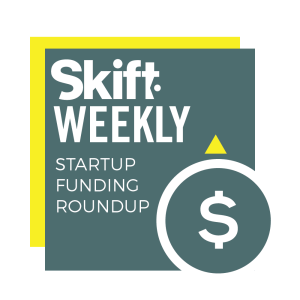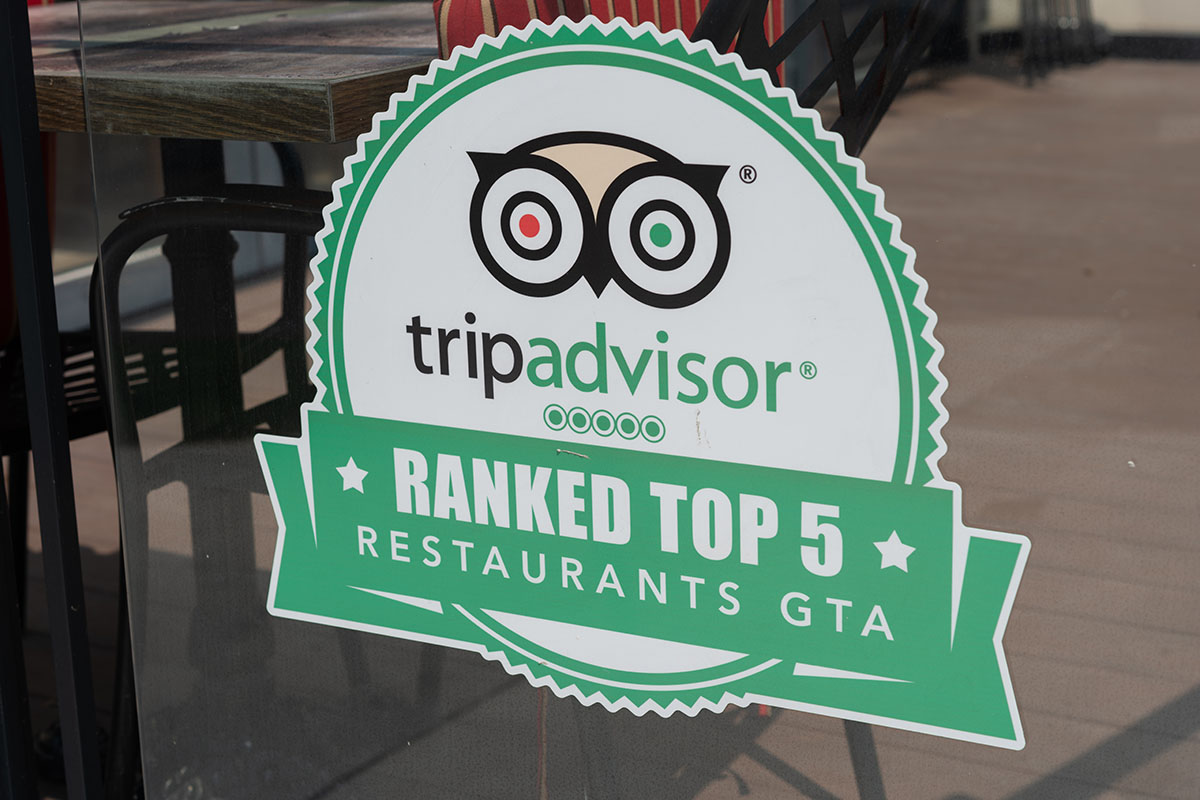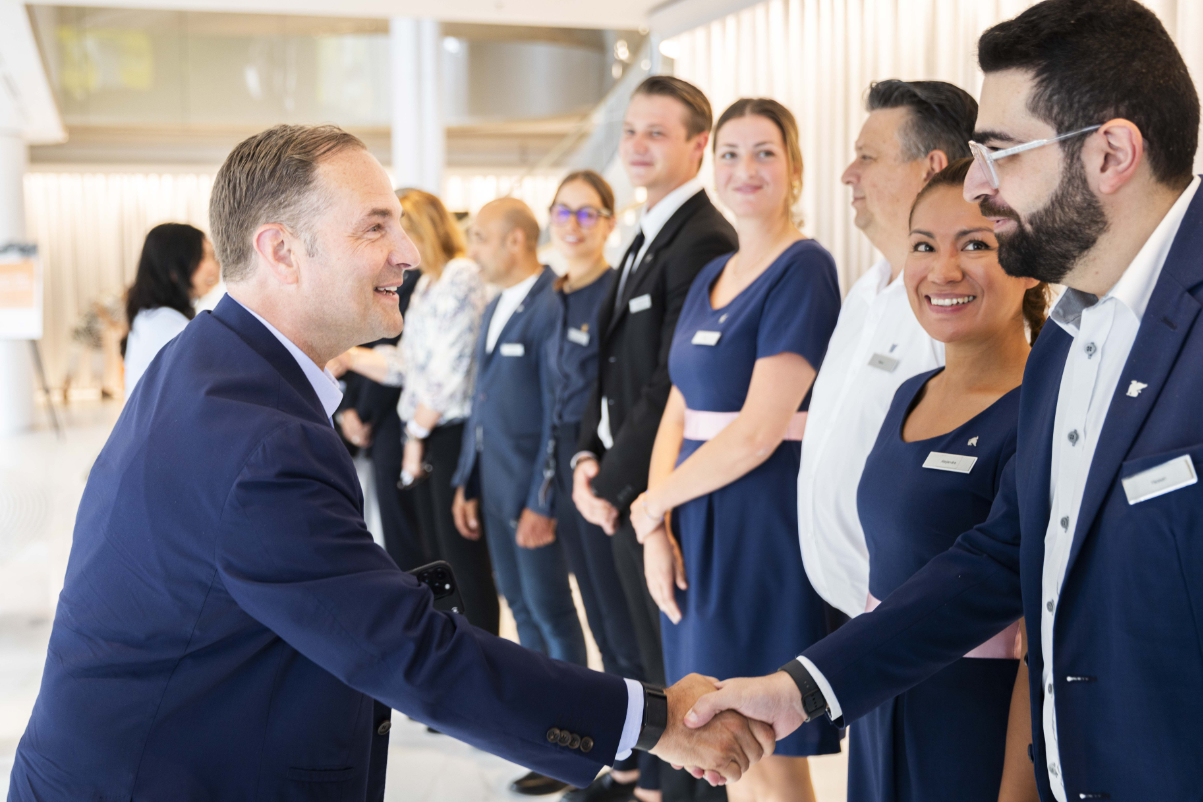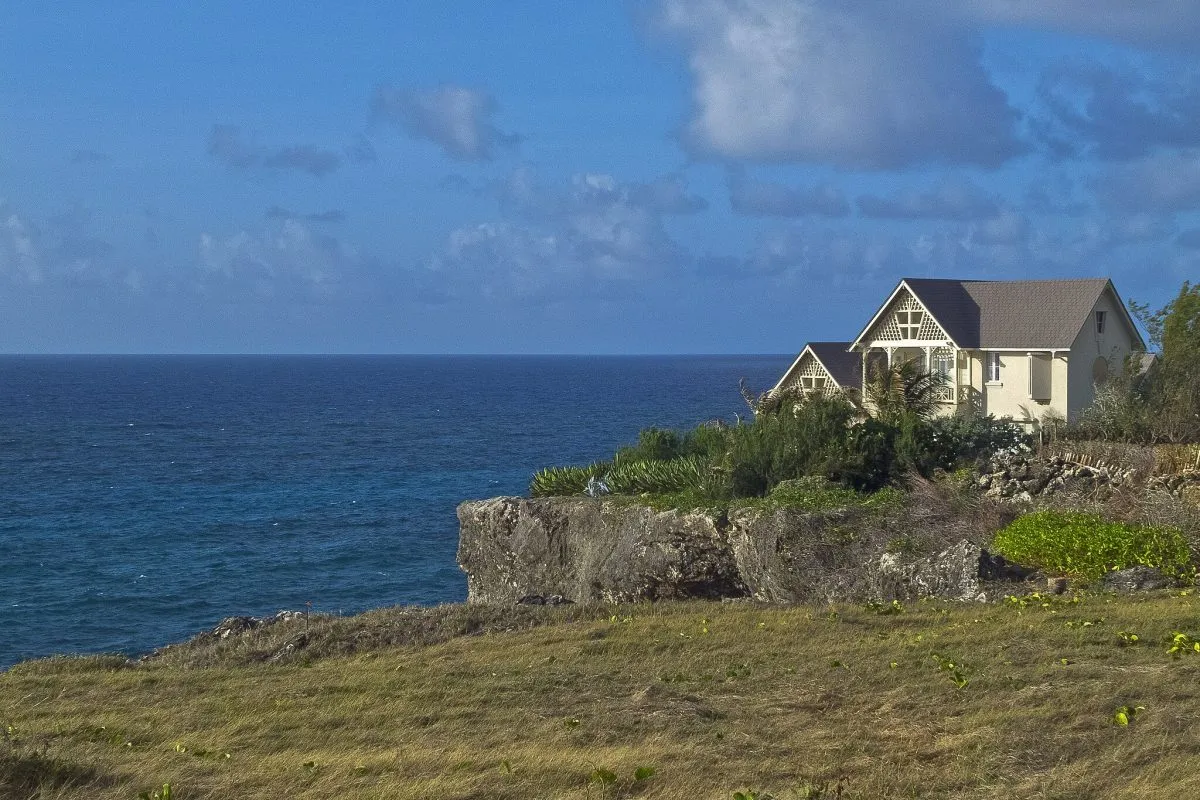17 Travel Startups Raise $636 Million in 3 Weeks

Skift Take

Travel Startup Funding This Week
Each week we round up travel startups that have recently received or announced funding. Please email Travel Tech Reporter Justin Dawes at jd@skift.com if you have funding news.Travel startups have raised nearly a billion dollars so far in November.
Seventeen travel companies raised nearly $636 million in the last three weeks. That's on top $318 million earlier this month for flying taxi startup Beta Technologies, plus some smaller fundraises.
The most significant so far this month — and all year for a software company — was Lighthouse which raised $370 million for its hotel tech platform.
Some of the main funding themes have continued, with deal for three electrified transport companies, several airline and hotel tech startups, and a handful of tech providers for tour operators.
Lighthouse: $370 Million
Lighthouse, which provides hotel tech for pricing, promotion, and distribution, has raised $370 million in series C funding.
Investment firm KKR led the round, with support from Spectrum Equity, F-Prime Capital, Eight Roads Ventures, and Highgate Technology Ventures.
The startup raised $80 million in 2021.
London-based Lighthouse (formerly OTA Insight) uses AI to process and analyze market data to help hotels and short-term rentals with commercial decisions.
The funding will go toward expansion, acquisitions, and strengthening the product.
Vertical Aerospace: $50 Million
Vertical Aerospace, which is developing a flying taxi, has secured a funding commitment of up to $50 million from Mudrick Capital.
It includes $25 million in upfront funding and an additional $25 million backstop, meaning Mudrick will pay the second half if Vertical Aerospace is unable to raise it from other sources. Stephen Fitzpatrick, may also invest an additional $25 million on similar terms.
The transaction converts $130 million in convertible notes into equity at $2.75 per share, reducing debt and fixing the conversion price of remaining notes at $3.50 per share. Loan repayments have been extended to December 2028.
London-based Vertical Aerospace is developing an electric vertical take-off and landing (eVTOL) aircraft. The design, called VX4, is for four passengers and one pilot. The plan is that it will complete trips of up to 100 miles at a speed of up to 150 miles per hour.
Fitzpatrick earlier this year invested $50 million to provide the startup enough cash to continue operations until the second quarter of 2025.
The company says it has pre-orders from more than a dozen customers for 1,500 units, worth more $5 billion. It recently completed its first piloted test flight.
Vertical Aerospace went public in December 2021 via a merger with a special purpose acquisition company. It said it spent $95 million on operating activities in 2023.
OpenAirlines: $47.2 Million
OpenAirlines, which helps airlines reduce carbon emissions and operating expenses, has raised $47.2 million (€45 million)
Eiffel Investment Group led the round, with support from Mirova.
France-based OpenAirlines says its platform uses AI to analyze more than 15 million flights and suggest various ways that airlines could reduce fuel consumption, including decisions that pilots could make in-flight. The company says its recommendations can decrease fuel usage by 3% to 5% per flight.
OpenAirlines has more than 70 airlines as clients, including Air France, Korean Air, EasyJet, JetBlue, flyDubai, Indigo, and DHL
The company says it has been profitable since 2021 and has reached €10 million in annual recurring revenue in 2024.
The funding will go toward expanding in North America and Asia, pursuing acquisitions to enhance its service offerings, and developing the tech.
CellPoint Digital: $30 Million
CellPoint Digital, which provides payments software for the travel industry, has raised $30 million from Toscafund and Penta Capital.
London-based CellPoint provides a platform meant to reduce payments friction between travel companies worldwide, which it says more easily enables those companies to offer consumers a variety of payment options.
Clients include Virgin Atlantic, Southwest, Sabre, Cebu Pacific, Avianca, Riyadh Air, Voepass, and La Compagnie.
The funding will go toward accelerating the launch of an airline retail platform as well as expanding the client base for the payments business.
Tourlane: $26.2 Million
Tourlane, a booking platform for multi-leg vacation packages, has raised $26.2 million (€25 million) in series D funding.
Sequoia Capital led the round and is now the startup’s largest shareholder. Other investors included Target Global and Qualtrics co-founder Jared Smith.
Berlin-based Tourlane offers tailored vacation packages, which users can develop with the help of an AI-powered trip planner. The startup says it has booked trips for more than 100,000 travelers.
The funding will go toward enhancing the platform's AI capabilities, expanding its offerings, and pursuing international growth.
Inside Travel Group: $25 Million
Inside Travel Group, which owns tours operators InsideJapan and InsideAsia, has raised $25 million (£20 million).
The investment comes from Piper and Cool Japan Fund.
InsideJapan specializes in small group tours and self-guided trips. InsideAsia specializes in cultural tours throughout Southeast and East Asia.
The company completed £65 million of revenue in 2024, a 33% increase, which it said was its best year yet.
The funding will go toward expanding into new Asian destinations, including South Korea and Thailand.
Apaleo: $20.9 million
Apaleo, a property management system for hotels and short-term rentals, has raised $20.9 million (€20 million) in a growth equity investment round.
PSG Equity led the round, with support from Redalpine, FOMCAP IV, and Rockaway Ventures.
The tech by Munich-based Apaleo handles hotel operations like check-in and check-out, housekeeping, and payments. It’s also connected to more than 250 third-party apps that clients can utilize as needed.
The tech is used to manage 85,000 rooms for 1,700 properties in 30 countries. Clients include hotel brands citizenM, easyHotel, and Falkensteiner Hotels & Residences, as well as serviced apartment managers Numa, Limehome, and iLive.
The funding will go toward expansion in Europe and internationally, hiring, further developing the platform.
Bounce: $19 Million
Bounce, a luggage storage app, has raised $19 million in series B funding.
Sapphire Sport led the round, with participation from Thayer Ventures, FJ Labs, 20VC Growth, Shilling, Andreessen Horowitz, and General Catalyst.
San Francisco-based Bounce allows travelers to temporarily store luggage with more than 13,000 local companies in 4,000 cities worldwide.
The company recently started selling a software service to hotels, enabling them to charge guests for storing luggage. The startup also plans to add bag delivery and shipping services.
The company was named No. 8 on the Inc. 5000 list of fastest-growing companies for 2024, with revenue growth of 19,783% over three years. The Inc. 5000 rules state that startups on the list must have generated at least $100,000 in revenue in 2020 (meaning Bounce's revenue in 2023 was at least $19.9 million). It was the top spot on the list for a travel company.
Candela: $14 Million
Candela, which makes electric hydrofoil ferries for transport operators, has raised $14 million to close its series C round at $40 million.
SEB Private Equity led the round, with support from EQT Ventures and KanDela AB.
The P-12 ferry by Sweden-based Candela works by using a fin to partially lift the vessel out of the water as it travels, which the company says halves commute times and reduces energy consumption by 80%. The ferry has room for 30 seats and one captain.
The company said the vessels also do not create wake, allowing them to move through the water faster. And its tech senses and counteracts choppy waters, meant to eliminate motion sickness.
The ferries are now part of public transportation in Stockholm, and they are coming to Lake Tahoe in California. The company has also secured deals with Saudi Arabia’s NEOM project, the city of Berlin, and New Zealand, among other international customers.
The funding will go toward scaling production.
The ePlane Company: $14 Million
The ePlane Company, which is developing a flying taxi for urban transport, has raised $14 million in a series B funding.
Antares Ventures and Speciale Invest co-led the round.
The India-based startup is developing an electric vertical takeoff and landing (eVTOL) aircraft that it aims will make urban commutes 10 times faster. It’s being designed for journeys of up to 68 miles and speeds of up to 124 miles per hour.
The company is also developing drones and cargo aircraft.
The funding will go toward further developing the aircraft and securing regulatory approvals, with plans to expand beyond India. The company also plans to expand its prototyping and testing facilities.
The Hosteller: $5.7 Million
The Hosteller, an Indian backpacker hostel chain with a tech platform for planning and booking trips, has raised $5.7 million (480 million Indian rupees) in series A funding.
The funding included $3.8 million in equity from V3 Ventures, with support from LV Angel Fund, FAO Ventures, Synergy Capital Partners, Unit-e Consulting, Ice.VC, Thrive Ventures, Chirag Jain, and several real estate offices. It also included $1.9 million in venture debt from Blacksoil.
The deal values the company at $23.7 million (2 billion Indian rupees).
The funding will go toward scaling operations and expanding to more than 150 locations across India within the next 24 to 30 months. The Hosteller currently operates more than 50 hostels in India.
The company reported $6.5 million in revenue and $474,000 in net profit for 2024.
Firsty: $5.3 Million
Firsty, an app that offers international mobile data coverage without continually switching eSIMS or data plans, has raised $5.3 million (€5.1 million) in seed funding.
Speedinvest led the round, with support from Dutch Founders Fund (DFF), Marcel Smits (former CFO of telecom company KPN), and executives from Mollie, Booking.com, Uber, Vodafone, and Adyen.
Amsterdam-based Firsty said it is able to unlock global connectivity for customers by integrating with key regional telecom providers, meant to help customers avoid high roaming costs or manually switching eSIMS for each destination. Users’ mobile devices will automatically connect to the best available provider based on their location, the company said.
The service has three plans: a free low-speed version, a higher speed connection for €1 per day, and a full-speed version for €2.50 per day. The app requires a one-time eSIM download, and users can pause the service and retain unused data.
The startup launched the product earlier this year and says it is now present in more than 150 markets and has more than 400,000 users.
Firsty recently partnered with Uber, enabling users to access the Uber app and book rides without incurring data charges. The startup also has a service that businesses can purchase for their employees and clients.
The company plans to scale its international presence and enhance the tech product.
Acai Travel: $4 Million
Acai Travel, an AI platform for travel company call centers, has raised $4 million in seed funding.
Nauta led the round, with support from DraperB1 and One Travel Ventures.
New York City-baed Acai Travel says its platfrom is meant to optmize call center operations and enhance agent efficiency. It includes AI helpers for policy information, understanding technical information, language translation, and call routing.
The products reduce average agent handling time by 20%, the startup said.
Clients include Hopper, Kiwi.com, Lastminute.com, World Travel Inc., and Goway.
The funding will go toward enhancing the tech.
Kaptio: $2.5 Million
Kaptio, a reservation tech provider for multi-day tour operators, has raised $2.5 million in new funding.
The funding comes from the sale of new shares as part of a broader investment led by private equity firm VEX, which acquired a 70% stake in the company. The size of the total investment amount was not disclosed. Other investors include Annata founders Birgir Ragnarsson, Björn Karlsson, and Jóhann Ólafur Jónsson, among others.
And some investors sold shares as part of the deal: Frumtak Ventures, New Business Venture Fund (owned by the Icelandic government), and Kaptio co-founder Arnar Laufdal Ólafsson.
Iceland-based Kaptio says its tech, built on the Salesforce platform, is meant to simplify the sales and operations of multi-day trips. Its products also include a system that enables digital payments through various sources.
The company works with enterprise travel sellers and operators that specialize in group travel, cruises, rail journeys, and custom trips. Clients include Intredid, Tauck, Audley Travel, Rocky Mountaineer, and Railbookers.
The company says its revenue has more than doubled since 2022.
The funding will go toward global expansion and enhancing the tech.
StampMyVisa: $783,000
StampMyVisa, which provides an AI-powered visa processing platform for travel companies, has raised $783,000 (66 million Indian rupees) in pre-series A funding from Unicorn India Ventures.
Mumbai-based StampMyVisa is meant to automate the complex visa application process that travel agents, employers, and event planners provide to Indian travelers.
The startup says it processes 350 visas daily, growing seven times over the past year.
The funds will go toward expanding across India, enhancing AI capabilities, and adding new products including insurance for visa fees and eSIMs. The startup aims to process 1 million visas annually within the next 12–18 months.
30 Sundays: $770,000
30 Sundays, which sells tailored vacation packages focused on couples, has raised $770,000 in a pre-seed funding.
InfoEdge Ventures led the round, with participation from First Cheque, Eximius, Misfits, and several angel investors.
India-based 30 Sundays says it aims to take advantage of the increasing number of outbound Indian travelers. The company says it leverages generative AI to automate sales and marketing, customer data collection, itinerary updates, and supplier quote audits.
The startup plans to expand into European markets and long-haul destinations as well as strengthen its AI and data capabilities.
Poncho: $620,000
Poncho, which provides weather insurance that travel companies can offer to customers, has raised $620,000 (550,000 Swiss francs) in seed funding from WeBuild Ventures.
The Switzerland-based startup says it tailors coverage during the booking process based on location, date, and activity. And it automates refunds for customers based on real-time weather data without the need for an insurance claim.
The funding will go toward expansion and strengthening the tech.
| Company | Stage | Lead | Raise |
|---|---|---|---|
| Lighthouse | Series C | KKR | $370 million |
| Vertical Aerospace | Unspecified | Mudrick Capital | $50 million |
| OpenAirlines | Unspecified | Eiffel Investment Group | $47.2 million |
| CellPoint Digital | Unspecified | Toscafund | $30 million |
| Tourlane | Series D | Sequoia Capital | $26.2 million |
| Inside Travel Group | Unspecified | Piper, Cool Japan Fund | $25 million |
| Apaleo | Unspecified | PSG Equity | $20.9 million |
| Bounce | Series B | Sapphire Sport | $19 million |
| Candela | Series C | SEB Private Equity | $14 million |
| The ePlane Company | Series B | Antares Ventures, Speciale Invest | $14 million |
| The Hosteller | Series A | V3 Ventures | $5.7 million |
| Firsty | Seed | Speedinvest | $5.3 million |
| Acai Travel | Seed | Nauta | $4 million |
| Kaptio | Unspecified | VEX | $2.5 million |
| StampMyVisa | Pre-Series A | Unicorn India Ventures | $783,000 |
| 30 Sundays | Pre-Seed | InfoEdge Ventures | $770,000 |
| Poncho | Seed | WeBuild Ventures | $620,000 |
Skift Cheat Sheet
Seed capital is money used to start a business, often led by angel investors and friends or family.
Series A financing is typically drawn from venture capitalists. The round aims to help a startup’s founders make sure that their product is something that customers truly want to buy.
Series B financing is mainly about venture capitalist firms helping a company grow faster. These fundraising rounds can assist in recruiting skilled workers and developing cost-effective marketing.
Series C financing is ordinarily about helping a company expand, such as through acquisitions. In addition to VCs, hedge funds, investment banks, and private equity firms often participate.
Series D, E, and, beyond These mainly mature businesses and the funding round may help a company prepare to go public or be acquired. A variety of types of private investors might participate.





